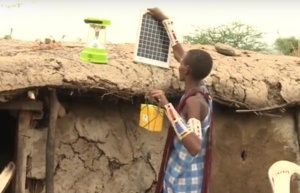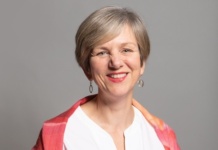With Africa’s largely developing infrastructural economies, one of the common denominators has been the supply of electrical energy not only to fuel the growth of industrialisation but also prop social development effectively.

Nonetheless, power outages are often also subject to climatic conditions for the generation of hydro-power megawatts in these countries so that the very idea of turning to the sun, which is in gratifying abundance in the continent becomes very appealing but also daunting noting the implication of costs and technological resourcefulness at very affordable levels.
So when Ronald Van Harten arrived in Kenya from the Netherlands in 2015 he was determined to invest in solar-powered equipment for homes across Africa, make a profit and help the rural poor get energy.
But within two years his company EcoZoom, which sells solar lights, radios, MP3 players and other equipment to some of Kenya’s poorest residents, ran into financial difficulties.
The banks were not willing to lend him the capital he needed to stay afloat and loans available from microfinance institutions were too small.
So, like a number of new technology companies seeking to scale up their programmes in Africa, he turned to a crowd funding company.
“Few banks if any could finance a social investment project dealing with people seen as high-risk group, and even worse banks are expensive and give conditions that are not easy to meet,” he told the Thomson Reuters Foundation, referring to high interest rates charged by banks.
TRINE, a Swedish company which raised funds for EcoZoom, has a community of about 1,000 young investors in northern Europe willing to each give a minimum of 25 euros ($27.14) to solar firms which aim to help the world’s poorest.
Using crowd funding, it has raised more than 750,000 euros ($814,200) for 10 renewable energy projects since its launch last year, said Matthew McShane, TRINE’s regional manager in East Africa. The firm has invested in countries including Kenya, Zambia, Uganda, Tanzania and Senegal.
In Kenya, EcoZoom received 170,000 euros in February, while 160,000 euros went to Azuri East Africa, part of Azuri Technologies. Two solar micro-grids have also received funds.
“The majority of (our) investors can invest in many other ventures in Europe but choose to put their money in social impact projects partly because they want to touch the lives of the poor and partly because returns are slightly higher when compared to … normal investments,” McShane said.
The returns are about 6 percent, because of the perceived higher risk associated with this market, he said.
It is emerging as an increasingly important means of financing new technology at scale in rural Africa, said Azuri Technologies CEO, Simon Bransfield-Garth.
“Crowd funding is clearly no longer just for start-ups and has the potential to provide a new class of capital for energy access,” Bransfield-Garth said.
Azuri East Africa turned to crowd funding when it wanted to raise cash to help its Kenyan partner, Raj Ushanga House, sell solar panels to 1,200 homes, helping 6,000 people access electricity.
Some 600 million people in sub-Saharan Africa – nearly two-thirds of the population – are living without access to the main electricity grid, one in 10 of whom are using off-grid clean energy, according to the International Renewable Energy Agency.
Crowd funding needs to be carried out by specialised firms that are well versed with the concept, he added. “One needs a good understanding of how this type of fundraising works to be able to execute it successfully.”
In East Africa, where it has helped fundraise most, the firm is attracted by relatively high awareness about solar energy with “mature markets”, and the availability of mobile money platforms – such as apps – that mean consumers can easily make payments using their mobile phones, McShane said.
“So far … things have gone smoothly. Of course, there are risks involved when making these kinds of investments, but the impact is massive,” said McShane. ($1 = 0.9211 euros)









